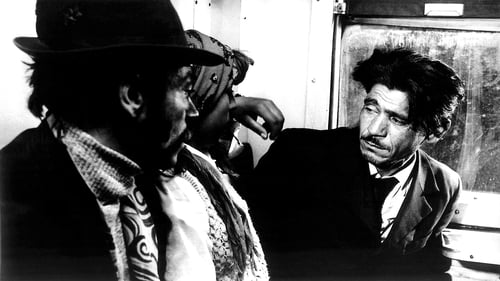
Zetelaki

Guszti
Blind luck ties the fate of two people together.

Béla bácsi
More than a storyline with a beginning, middle, and end, this tale of a foundry worker who engages a woman -- and fellow worker -- to do housekeeping for him is a tale that holds up the Hungarian social system against the morality of an exploitative male-female relationship. After his wife dies, the rough-cut and intentionally nameless "man" (Jozsef Madaras) eventually coerces the "woman" (Julianna Nyako) into doing his housework for a small remuneration. Everything goes along passably well for awhile, until the man adds in more household responsibility in the form of chickens to raise. Due to extra work at the factory, the woman cannot tend to the chickens as she should and the result is that some of them die. The man is furious, verbally abuses her, and then rapes her. Later, the woman discovers she is pregnant, with dire consequences.

Hevesi
Irén and Attila, a not-so-young couple, are in love. All they want is a flat of their own where they could live together. Unfortunately, Hungary in the 70s is no place for dreams.

A fuvaros
Balog Mihály, the Gypsy man from Szabolcs works in Budapest. That is where he is notified that his young wife died. Again he behaves differently from his fellow-men in the Koportos Gypsy settlement: he wants to give a beautiful, rich burial ceremony to his wife.

Kajtár
The film condenses the awkwardness of country and functionary existence, consumer thinking based on paternalistic relationships into the sequence of events of 20 August, the feast of the Hungarian new loaf with sentimental irony and documentary credibility. A railwayman's family on the Balaton highlands expects the Budapest relative with his functionary boss and family.

Molnár
Jutka, a young woman who works in a factory, falls in love with Andras, a university student. She pretends to be a student, to him and to his parents, and begins to live a lie. Finally she rebels against Andras and his demands and the social conventions that forced her to live a lie.

Sajtár Dezső
In this naturalistic satire enriched with burlesque, Boróka, the haircutting artist once cuts a hair so, that the customer has to be shaved bald. Sajtár Dezső wants to kill the barber, who feels to be a victim himself immediately. In his anguish he mixes up his apartment, his wife and everything in the uniform world of the block of flats and like a maniac, tries to find after his pursuer. They find each other at a neurological clinic.





